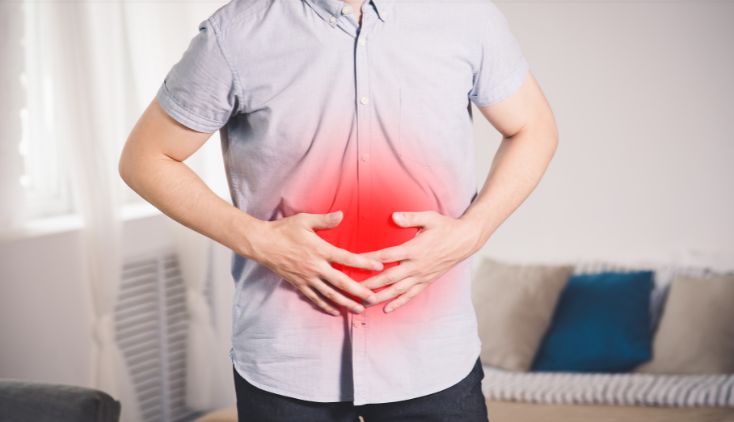Gut Feelings
Knowing the signs of UC can help you seek treatment and manage the disease better. To help, there's ENTYVIO (vedolizumab), a medication used to treat ulcerative colitis (UC), a type of inflammatory bowel disease (IBD).
Signs of Ulcerative Colitis
1. Abdominal Pain and Cramping
People with ulcerative colitis often feel pain in their stomach area. This pain can be sharp or like a cramp. It usually happens before or during a bowel movement. The discomfort can make it hard to focus on daily activities.
2. Diarrhea
Frequent diarrhea is a major sign of ulcerative colitis. You may need to go to the bathroom many times each day. Sometimes, diarrhea can be very urgent, making it hard to hold it in. This can be embarrassing and inconvenient.
3. Blood in Stool
Seeing blood in your stool can be very worrying. It is a common symptom of ulcerative colitis. The blood may be bright red or dark. If you notice blood, it's important to see a doctor right away.
4. Weight Loss
Unintentional weight loss can happen with ulcerative colitis. This can occur for several reasons, like having a poor appetite or losing fluids from diarrhea. If you notice you are losing weight without trying, it’s important to talk to your doctor.
5. Fatigue
Feeling tired all the time, or fatigue, is another sign of ulcerative colitis. The inflammation in the body can use up a lot of energy, leaving you feeling weak and exhausted. Fatigue can also be due to not eating enough because of pain or discomfort.
6. Fever
Some people with ulcerative colitis may have a fever. This can happen if the body is fighting inflammation or infection. A fever is usually a sign that something is wrong and should be checked by a doctor.
Treatments for Ulcerative Colitis
If you think you have ulcerative colitis, it’s important to see a doctor for diagnosis and treatment. Here are some common treatments:
- Medications: Doctors often prescribe medications to help reduce inflammation in the intestines. These can include anti-inflammatory drugs and immune system suppressors.
- Diet changes: Some people find relief by changing their diet. Eating smaller meals and avoiding spicy or fatty foods can help reduce symptoms. A nutritionist can help you create a diet plan.
- Hydration: Staying hydrated is important, especially if you have diarrhea. Drinking plenty of water can help you feel better and prevent dehydration.
- Surgery: In severe cases, surgery may be necessary. This can involve removing the affected part of the colon. It’s usually considered when other treatments do not work.
- Support groups: Joining a support group can help. It allows you to connect with others who have the same condition. You can share experiences and find advice on managing symptoms.
- ENTYVIO (vedolizumab): Vedolizumab is a medicine used to treat certain diseases that affect the intestines, like ulcerative colitis and Crohn's disease. It works by helping to reduce inflammation in the gut. Vedolizumab is an injection that a doctor gives to patients. It helps the immune system not attack the intestines, which can make people feel better and help them have fewer symptoms. This medicine is usually used when other treatments haven't worked well.
If you notice any signs of ulcerative colitis, talk to your doctor. Early treatment can help manage symptoms and improve your quality of life.
Check out some foods you should be avoiding if you have stomach cancer.
